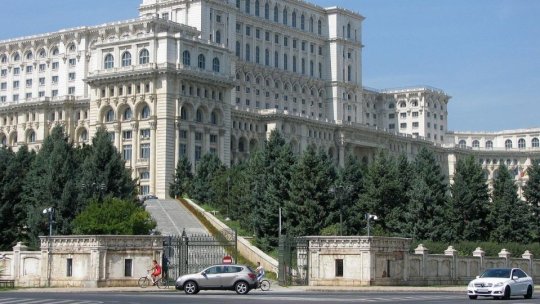No-confidence motion against Labour Code read today
According to the opposition, the no-confidence motion is a form of sanction aimed at the alterations made to the Labour Code but also at the procedure for assuming responsibility.

Articol de Alexandra Cristea, 09 Martie 2011, 11:07
The no-confidence motion, nicknamed ‘Boc Code – small salaries, high unemployment, bankrupt companies’, was submitted by the opposition on Tuesday, after the new Labour Code, which the Government chose to adopt by taking responsibility for, had been read in Parliament.
According to the Government, the Labour Code had to be altered for rendering labour market more flexible and for aligning it with the European regulations.
The opposition claims that if adopted by taking responsibility for it could lead to instability on the labour market.
According to the opposition, the no-confidence motion is a form of sanction aimed at the alterations made to the Labour Code but also at the procedure for assuming responsibility.
The PSD leader, Mircea Duşa, says that this new code will affect the labour market.
‘We do it only because this draft is seriously affecting the labour market and employees’ situation on the labour market will be unstable’, the PSD leader stated.
In turn, the liberals are discontent with, among other things, the fact that the new code does not include any clear provision concerning collective employment contracts.
New Labour Code reduces ‘undeclared work’
Despite the criticism against the new code, the chief of the Executive, Emil Boc, claims that the alterations he put forward will reduce undeclared work and that employers will be able to hire people and employees will find employment more easily.
Moreover, the premier claims that the actual code is outdated and must be aligned with the European legislation.
‘The current Labour Code was adopted in 2003. Since 2003 and up until this year two new elements have been introduced and the alteration of the Labour Code is needed. First of all, the fact that Romania joined the European Union. Second of all, the global meltdown has shown that we need more flexible labour relations’, the premier stated
The coalition partners believe that the final version of the Labour Code is quite acceptable and they will support it even if is not perfect.
Both the Democratic Alliance of Hungarians in Romania and the National Union for the
Progress of Romania have made some compromises, but they are still discontent.
‘From our point of view, the performance targets belong with the management and it should not be related to the individual employment contract, a contract that, from this point of view, is the weak link as far as the protection of the employees is regarded’, the president of the National Union for the Progress of Romania, Marian Sârbu, stated.
The no-confidence motion will be read today and will be voted next Wednesday.
Translated by: Raluca Mizdrea
MA Student, MTTLC, Bucharest University









